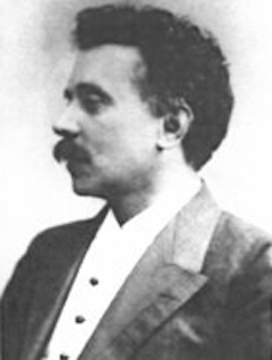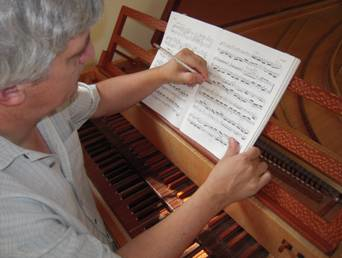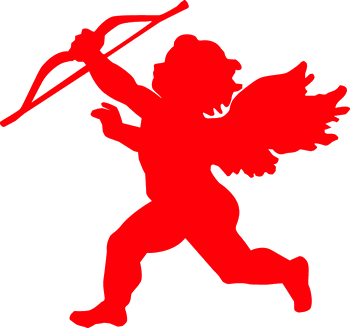The Well-Tempered Ear
Classical music: The annual FREE Karp Family Labor Day Concert on Monday night features new music, unknown works and neglected composers
7 Comments
By Jacob Stockinger
The Ear is not alone in viewing the official opening of the new fall season as being the annual FREE Karp Family Labor Day concert, which takes place on the holiday Monday night before classes begin at the UW-Madison. (Below and from left, in the 2011 photo, are pianist and violinist son Christopher Karp; violist Katrin Talbot; the late pianist Howard Karp; cellist son Parry Karp (who is married to Katrin Talbot); and pianist wife Frances Karp.)
This year, that means the concert is on this coming Monday night, Sept. 5, at 7:30 p.m. in Mills Hall on the UW-Madison campus.
In the decades-long history of the event, pieces never get repeated.
That may help to explain why this year’s program features the new and the neglected rather than the tried-and-true.
Here is how cellist and patriarch of the Karp family Parry Karp (below) explains it:
“The program includes a world premiere performance of a brand new piece for Cello and Piano by Joel Hoffman (below), to be performed by my brother Christopher Karp and myself. It is entitled “Riffs on a Great Life.”
“The great life he is writing about is our Dad’s, longtime UW-Madison pianist Howard Karp, who died two years ago at 84.
“Robert Kahn (below) was a wonderful composer of chamber music and lieder whom Johannes Brahms admired very much. They initially met in 1885 when Kahn was only 20 years old. Brahms was impressed both by his compositions and his piano playing. We are greatly enjoying learning his Piano Quartet No. 2, which will feature my mother Frances Karp.
Pro Arte Quartet second violinist Suzanne Beia and my wife, violist Katrin Talbot, will join in the performance.
“The “Rhapsody” by Rebecca Clarke (below) is an unjustly neglected masterpiece that unfortunately has never been published. Frances and I are playing it from a copy of the manuscript. It was commissioned by Mrs. Elizabeth Sprague Coolidge in 1923, and is a very romantic and expressive piece.
Also on the program is “Fratres” for cello and piano by the Estonian composer Arvo Pärt (below), who turns 82 on Sept. 11. According to one source, he has been the most performed living composer in the world for five consecutive years.
The dramatic and insistent piece was used as part of the soundtrack or film score for the movie “There Will Be Blood” with Daniel Day-Lewis. Here is a link to a performance with over one million hits on YouTube:
Tags: Arts, Arvo Part, Cello, Chamber music, Classical music, composer, Daniel Day-Lewis, Elizabeth Sprague Coolidge, Estonia, Family, film, Film score, Howard Karp, Jacob Stockinger, Joel Hoffman, Johannes Brahms, Labor Day, Madison, manuscript, Music, Piano, Pro Arte Quartet, Rebecca Clarke, rhapsody, soundtrack, There Will Be Blood, United States, University of Wisconsin-Madison School of Music, University of Wisconsin–Madison, Viola, Violin, Wisconsin, YouTube
Classical music: This Thursday is a good day to hear local musicians Trevor Stephenson, Token Creek Festival participant Robert Levin and members of the Karp Family perform music and do interviews on the radio. Plus, Trevor Stephenson will offer a course this fall at his home studio about the keyboard music of Bach, Handel and Scarlatti.
Leave a Comment
By Jacob Stockinger
The Ear has heard from two loyal readers and friends – period keyboardist Trevor Stephenson and the WORT FM radio host Rich Samuels about events that will take place on the airwaves this Thursday morning and noon.
WORT-FM 89.9
Rich Samuels (below), who hosts the weekly classical radio program “Anything Goes” from 5 to 8 a.m. on WORT FM 89.9 and who records and emphasizes local music and local musicians, writes:
“This Thursday morning, Aug. 29, starting at 30 seconds past 7:07 to about 7:45 a.m., I’ll be airing (on WORT 89.9) a recut of an interview I recorded last August with Howard, Frances, Parry, Ariana and Isabel Karp in anticipation of the 36th FREE annual Karp Family Labor Day Concert on Monday, Sept. 2, at 7:30 p.m. in Mills Hall. (As you recall, that same concert last year was cancelled on account of Illness).
“Recorded music for this segment includes recordings of Howard and Parry performing the final movement of John Ireland’s Sonata in G minor for Piano and Violin (adapted for violin and cello); Howard and Frances Karp playing Antonin Dvorak’s Slavonic Dance in E minor Op. 72, No. 2, for piano, four hands version; and Joel Hoffman’s “Karptet” (featuring Frances Karp, Howard Karp, Christopher Karp, Parry Karp and Katrin Talbot).”
The program this year includes Pro Arte Quartet violinist Suzanne Beia plus the above Karp family members. The program includes: the Sonata in G minor, Op. 2 No. 8 for Two Cellos and Piano (ca. 1719) by George Frideric Handel (below in a YouTube video); “ November 19, 1828” for Piano and String Trio (1988) by John Harbison ; Sonata in D major for Piano and Cello, Op. 102, No. 2 (1815) by Ludwig van Beethoven ; and music and dramatic excerpts from Shakespeare’s “A Midsummer Night’s Dream,” Op. 61, with incidental music by Felix Mendelssohn. Notes about the concert will be featured on this blog on Friday. (Below are daughter Ariana Karp and father Parry Karp at the Labor Day family concert in 2011.)
Adds Samuels: The Karp segment runs 37 minutes and 43 second. The show concludes with a recording John Harbison gave me from last year’s Token Creek Chamber Music Festival: the first movement of Mozart’s Concerto in D Major for Piano and Orchestra K. 537 in a chamber arrangement featuring some pretty amazing improvising by Harvard University pianist Robert Levin (below) who will perform some of his Mozart completions this coming weekend at the Token Creek Festival. Other instrumentalists are Heidi Braun-Hill and Rose Mary Harbison (violins), John Harbison (viola) and Rhonda Rider (cello).
WERN 88.7 FM
Another fan and friend, Trevor Stephenson (below) writes:
On Thursday, August 29, l will be playing fortepiano live on Wisconsin Public Radio’s (88.7 FM) “Midday” program, hosted by Norman Gilliland.
I’ll play selections by Wolfgang Amadeus Mozart, Franz Joseph Haydn, Ludwig van Beethoven and Franz Schubert, and Norman will interview me about the all things fortepiano: How and why it came about in the 18th century? How its construction (thinner wire, leather hammers, all wooden frame, etc.) facilitates playing of Classical-era repertoire?
I’ll talk about why the fortepiano is particularly theatrical, affectively polarized really — from its giddy, fizzy, articulate highs, to its moody, menacing, growling lows. Wisconsin Public Television will also be filming the broadcast and that will air on WPT later in the year.
Also, this Fall — on Monday evenings from October 14 through November 18 — I’m offering a course on the keyboard music of Bach, Handel and Scarlatti. I’ll discuss the stylistic similarities and divergences of these three masters — all born in 1685 — and will also examine how each composer integrated elements of various national styles (French, German, Italian, Spanish, Polish, Hungarian . . .) to form their own personal compositional voice.
I’ll talk about each composer’s life and personality as well as the social circles within which they moved. I’ll also discuss and demonstrate—at both the harpsichord and piano — approaches to performing their music and we will look into elements of performance such as fingering, tempo, rubato, articulation, voicing, instruments, and the ever-elusive yet oh-so-important Affect, or interpretation, or feeling for the moment at hand!
Here is some of the specific repertoire we’ll look at: Johann Sebastian Bach – English Suite in G minor, “Capriccio on the Departure of a Beloved Brother,” “Art of Fugue” Contrapunctus XIX (ending with the B-A-C-H fugue), the C major Prelude and Fugue from Book I and Book II of “The Well-Tempered Clavier to compare them; George Frideric Handel – Suite in E major (which concludes with the “Harmonious Blacksmith” variations), Gavotte in G major, Suite in D minor (which includes the famous Sarabande), Impertinence, Allegro in G major; Domenico Scarlatti – Sonatas: K. 238 and 239 both in F minor, K. 159 in C major, K. 9 in D minor “Pastorale,” and K. 380 in E major.
The course is geared for those people with a reading knowledge of music. The classes will be given at my home studio from 7-8:30 p.m. on the following Monday evenings: October 14, 21, Nov. 4, 11, 18. My home studio (below during a “house concert”) is at 5729 Forsythia Place, Madison, WI 53705. Enrollment for the course is $180. Please let me know by September 15 if you’d like to attend. Contact me at www.trevorstephenson.com or by calling (608) 238-6092.
The Madison Bach Musicians 2013-14 season is now posted and tickets are available! This is our 10th season! Opening concert is October 5. See www.madisonbachmusicians.org Sign up and more details will com by email in a couple of days.
Tags: Antonín Dvořák, Domenico Scarlatti, Felix Mendelssohn, George Frideric Handel, Harvard University, Joel Hoffman, Johann Sebastian Bach, John Harbison, Norman Gilliland, Piano, Robert Levin, The Well-Tempered Clavier, Token Creek Chamber Music Festival, wisconsin public radio, Wisconsin Public Television, Wolfgang Amadeus Mozart, WORT FM, YouTube
Classical music: The University of Wisconsin’s Pro Arte String Quartet will tour Europe in January of 2014. It also gives the world premiere of a quartet by Joel Hoffman this Saturday night along with classic works by Mendelssohn and Mozart. Plus, this Friday night, the UW Symphony Orchestra performs with the student concerto competition winners and plays a student work.
6 Comments
ALERT: This Friday at 8 p.m. in Mills Hall, UW conductor James Smith (below) will lead the UW Symphony Orchestra in the annual FREE concert by the student concerto competition winners and the student composition winner. This year’s program includes: Nicolai Rimsky-Korsakov‘s “Capriccio Espagnol”; soprano Shannon Prickett singing the aria “Pace, pace mio Dio” from Verdi’s “La Forza del Destino“; percussionist Jacob Wolbert in the third movement of Joseph Schwantner’s Concerto for Percussion; cellist Philip Bergman in Robert Schumann’s Cello Concerto, Op. 129; violinist Nathaniel Wolkstein in the first movement of Camille Saint-Saens‘ Violin Concerto No. 3; pianist Yusuke Komura is the first movement of Edvard Grieg’s Piano Concerto in A Minor; and “Whispering Seraphim” by student Joshua Hintze, conducted by David Grandis.
By Jacob Stockinger
For The Ear, one of the MUST-HEAR concerts will take place this coming Saturday night, Feb. 16, at 8 p.m. in Mills Hall on the campus of the University of Wisconsin-Madison.
That is when the Pro Arte String Quartet (below in a photo by Rick Langer) -– now in its record-breaking 101st season after last year’s commission-filled Centennial -– will perform a very appealing program that is FREE and open to the public.
The first half of the chamber music concert is devoted to quartets based on the theme–and-variations format.
The concert opens with the last unfinished quartet, Op. 81, from 1847 by Felix Mendelssohn (below), who died at 36 that same year. The work has two movements that Mendelssohn supposedly wrote in overwhelming grief at the death of his sister-composer Fanny Mendelssohn.
Then comes the world premiere of a string quartet from 2012 with 14 short movements by the American composer Joel Hoffman (below) of Cincinatti, whose work is often featured in Madison by members of the Karp family at their Labor Day concerts.
As The Ear understands the story, Hoffman wrote the work for the Pro Arte on the occasion of its centennial last season. (The Pro Arte Quartet has a long history, right from its founding, of playing and championing new music, starting from Schoenberg, Webern, Berg and Bartok right through today.)
But the Arte had already commissioned several new works (string quartets and piano quintets) for the centennial — including one quartet by well-known American composer John Harbison, who has won the Pulitzer Prize and a MacArthur Foundation “genius grant,” that also features many small or short movements. So this “volunteer” commission by Hoffman was not included in the official centennial, but will finally get a hearing.
I have found Hoffman’s work – a couple of piano trios and a cello sonata, I seem to recall – modern but accessible, interesting and engaging. Se will see how the strong quartet stacks up.
Then the concert will conclude with one of the great all-time masterpieces of chamber music: Mozart’s String Quartet in G Major, K. 387, from 1782, one of the six great “Haydn” quartets that Wolfgang Amadeus Mozart (below) composed to honor his older mentor Franz Joseph Haydn, who had basically invented and perfected the string quartet as a genre and whom Mozart admired and loved.
In fact the two geniuses played string quartets together, with Mozart (below right) on viola and Haydn (below left) on violin.
In related news, The Ear has also learned that the Pro Arte Quartet has signed on to do a European tour in the first half of January 2014. The exact itinerary, details and length are still being worked out, but the tour will include at least one stop in Belgium.
Belgium is where the Pro Arte was founded at the Brussels Conservatory in 1911-12 and eventually became the royal court quartet before being exiled in Madison by World War II and accepting an artist-in-residence post at the UW-Madison in 1940, where it has remained ever since.
In addition, a quartet by a contemporary Belgian composer, Benoit Mernier (below), whose work has been commissioned as part of the continuing centennial celebration and will be premiered next season.
Classical music: You can celebrate romantic love AND support the arts at the University of Wisconsin-Madison by attending the University Club special Valentine’s Day dinner and concert with the Pro Arte String Quartet.
Leave a Comment
ALERT: There are two events to note: This Friday, the weekly FREE Noon Musicale — from 12:15 to 1 p.m. — at the First Unitarian Society of Madison. 900 University Bay Drive, will feature Trevor Stephenson and the early music, period-instrument ensemble Madison Bach Musicians (below) in baroque trio sonatas by J.S. Bach, Biber, Vivaldi and Scarlatti. The same group will also perform the same program on this weekend’s edition of “Sunday Live From the Chazen” on Sunday that will air live statewide from 12:30 to 2 p.m. on Wisconsin Public Radio (WERN 88.7 FM in the Madison area).
By Jacob Stockinger
Looking for something special or even unusual – and therefore memorable — to do to celebrate Valentine Day, a week from today?
Eating and music go right along with love.
So you might consider the Valentine Day dinner at the University Club at 803 State Street near Bascom Hill and the Mosse Humanities Building on the campus of the University of Wisconsin-Madison. (Below top is an exterior shot in winter,; below bottom is an interior photo.)
The outreach event (tickets are NOT tax-deductible) is open to the public and starts with cocktails and conversation at 5:30 p.m. Then it moves on to a three-course dinner at 6:30 p.m. and concludes with concert performance by the UW’s famed Pro Arte String Quartet (below, in a photo by Rick Langer) at 7:30 p.m.
The quartet’s program has not been announced yet but may likely include some excerpts from Mozart (the String Quartet in G Major, K. 387), Mendelssohn (from the two movements of his unfinished Op. 80 late quartet) and the new quartet-variations “anther time” (2012) by Joel Hoffman, whose works they will also be performing in full and for FREE on next Saturday night, Feb. 16, at 8 p.m. in Mills Hall. In fact, the Hoffman quartet will also receive its world premiere that night. (At bottom is a YouTube video of the Pro Arte Quartet playing a very beautiful prelude by Ernest Bloch during the quartet’s centennial last season.)
Reservations are $40 per person. They can be made by calling (608) 22-5023 or by emailing uclub@uclib.wisc.edu
For a complete menu — which includes berries, beef tenderloin, striped bass and of course chocolate — and more details, visit: http://www.uclub.wisc.edu
The event is sponsored by the UW-Madison Arts Outreach, located in the UW Arts Institute, and works with the UW School of Music to share the expertise of its three resident arts ensembles – the Pro Arte Sting Quartet, the Wingra Woodwind Quintet and the Wisconsin Brass Quintet – with young musicians and community audiences around the state.









































